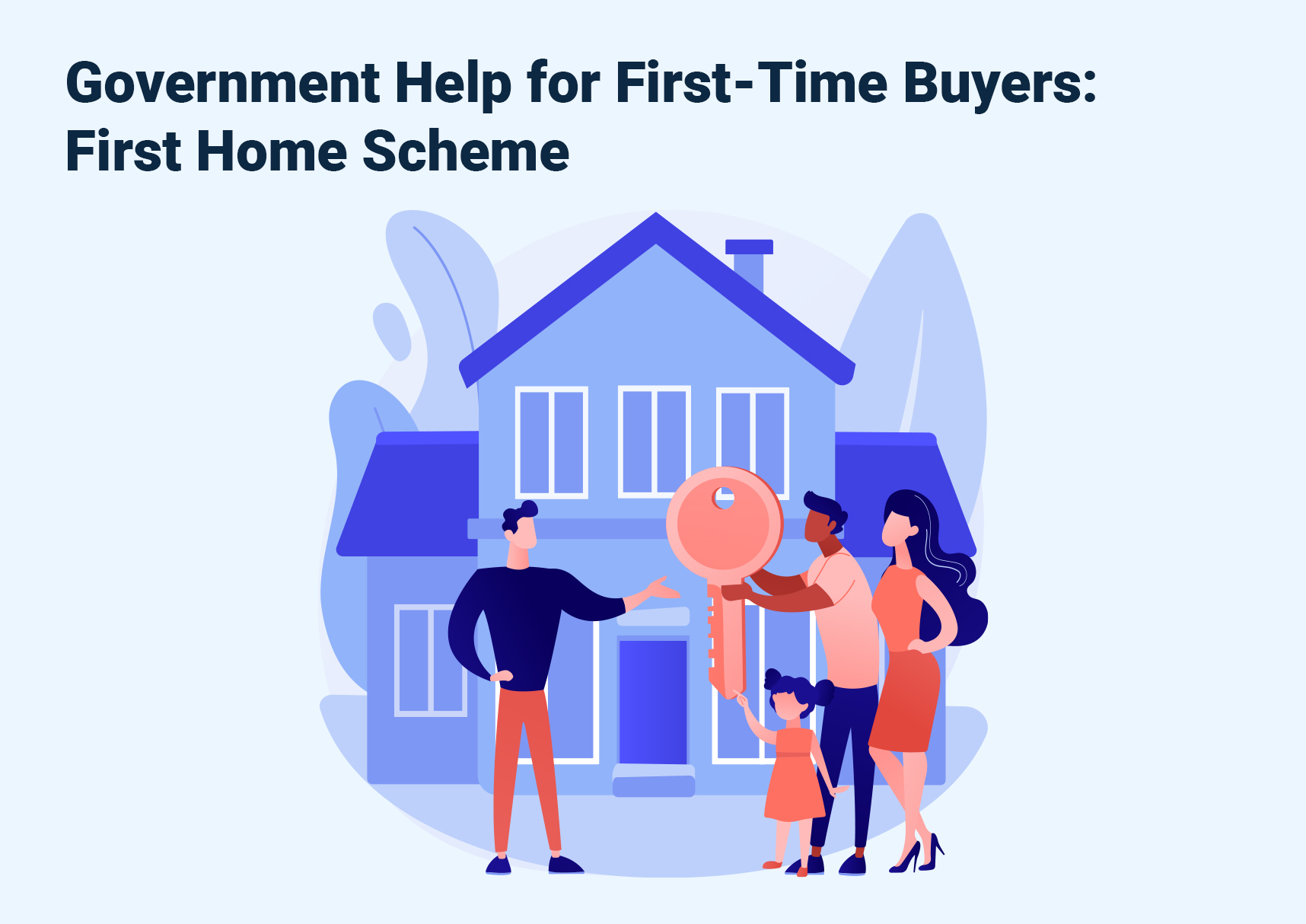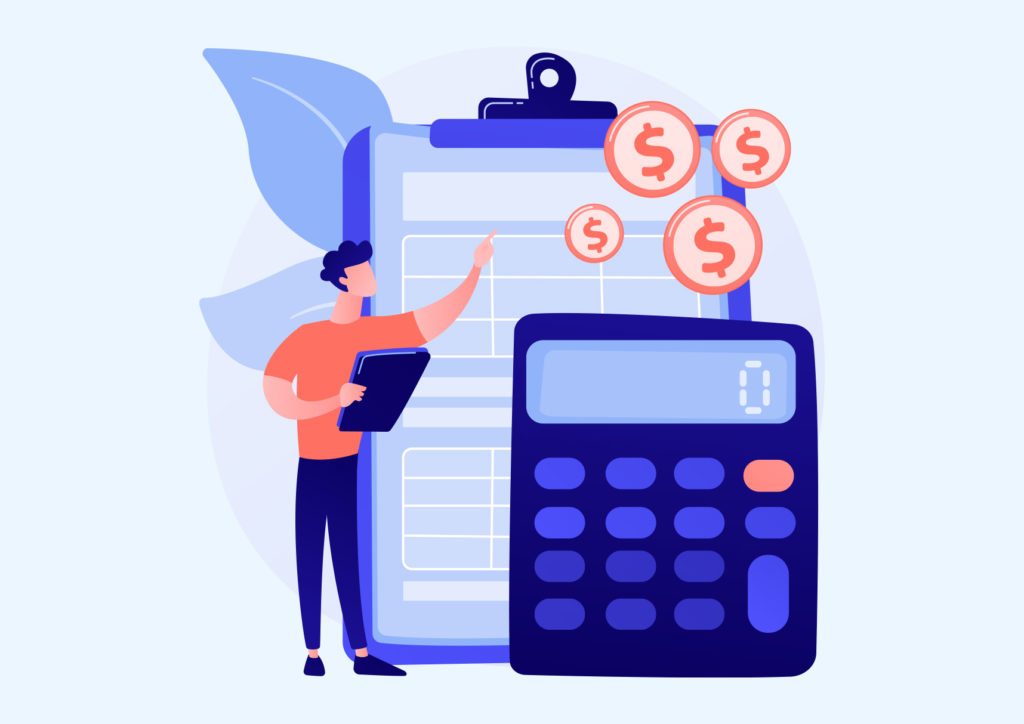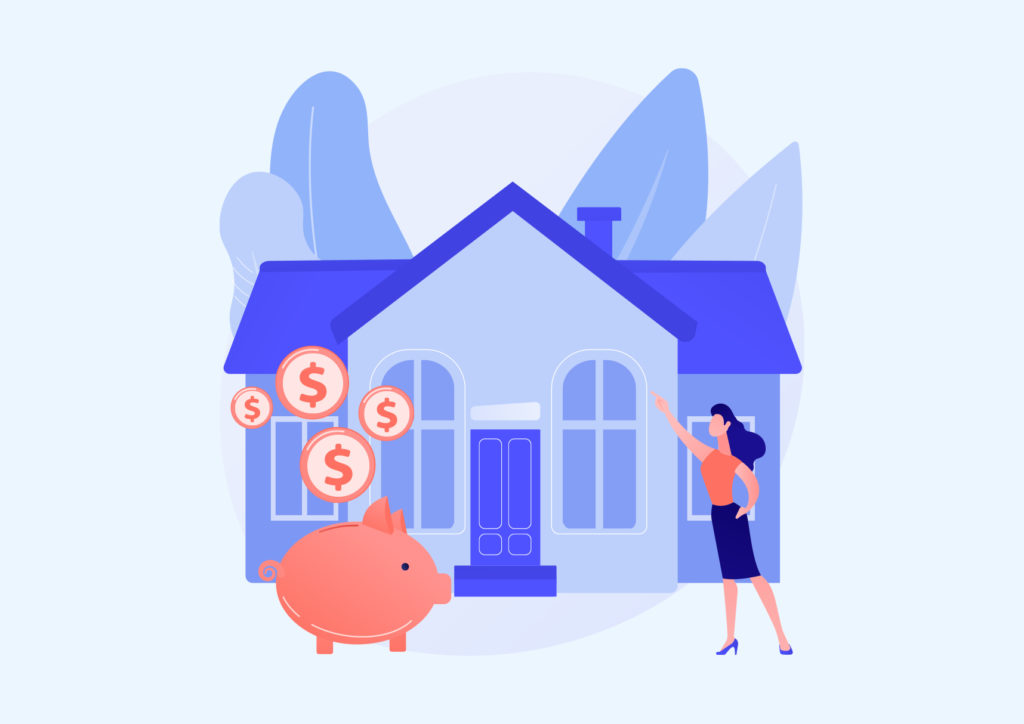Government Help for First-Time Buyers: First Home Scheme

Government help for first-time buyers in the UK is quite comprehensive. From equity loans to the First Home scheme to tax relief to mortgage initiatives, first-time buyers can find plenty of ways to maximise their savings to get onto the property ladder.
After decades of rising property prices, it can be extremely tricky for first-time buyers to purchase their home. As a result, the government has stepped in with various schemes to help.
In this article we take a look at some of the things first-time buyers need to know about the UK property market and what government help for first-time buyers exists.
What Qualifies as a First-Time Buyer?
A first-time buyer is classified as someone buying their only or main residence. The individual has never owned a residential property in the UK or abroad.
Anyone who has owned a home before will not be eligible for first-time buyer status. Regardless of whether they purchased the property. For instance, those who have inherited a property will not qualify as a first-time buyer.
A couple looking to buy their first home together may also not qualify. If one person in the couple has owned a home before, they they aren’t eligible for the first-time buyer scheme. Even if it’s the first instance of owning a home for the other person.
Some people might be eligible for a first-time buyer scheme even if they have owned a property before, such as those who are divorced or widowed.
The first-time buyer schemes vary across the UK and some are only available to people living in certain areas. For example, Help to Buy ISAs and Lifetime ISAs are only available to those living in England and Wales. The Scottish Government has its own schemes, including Help to Buy (Scotland) and the Shared Equity scheme. In Northern Ireland there is the Co-Ownership scheme and various other initiatives.
What is a First Home?
 Government help for first-time buyers includes the First Home scheme: discounted market sale housing. The UK government has stated that First Homes should account for at least 25% of all affordable housing units delivered by developers.
Government help for first-time buyers includes the First Home scheme: discounted market sale housing. The UK government has stated that First Homes should account for at least 25% of all affordable housing units delivered by developers.
First Homes should meet the definition of “affordable housing” and fit the following criteria:
- Must be discounted by at least 30% against market value
- Sold to those that meet the “First Home” eligibility criteria
- On the first sale the home has a restriction on the title to ensure the discount
- After the discount has been applied the first sale must be at a price no higher than £250,000 or £420,000 in Greater London (this does not apply to subsequent sales)
The pilot First Home scheme began in 2021 in the West Midlands and sites in Staffordshire and Durham were added. A further 1,500 homes were added by early 2022. The First Home scheme has been widely praised for its potential to help people on low incomes gain access to decent and affordable housing.
The success of the First Home scheme has seen it rapidly expand across the country since its launch in 2021. It is now available in over 20 locations across England, Scotland and Wales, with plans for even more sites to be added soon. The government’s commitment towards providing decent and affordable housing for those on low incomes is encouraging news for those struggling to get onto the property ladder
What is The First Home Scheme?
The First Home scheme enables first-time buyers to purchase a home for 30-50% less than its market value. The scheme is only available in England. It applies to homes that are newly built by a developer or a home originally bought as part of the scheme by someone else.
To qualify for the first home scheme, you need to meet certain criteria:
- Be 18 or older
- Be a first-time buyer
- Be able to get a mortgage to cover at least half the price of the home
- Be part of a household where total income is no more than £80,000 or £90,000 in London
Some councils may also set extra criteria, including prioritising homes for essential workers, those on lower incomes or residents who are already living in the area.
Once you have verified that you meet the criteria for the First Home scheme, the next step is to find a suitable property. You can either search for properties available through the scheme on your local council’s website or contact a housing association or developer directly. When you have found a property you are interested in, you will need to submit an application form and provide evidence of your income and identity. After your application has been approved, you will be able to move into your new home.
How Does the First Home Scheme Work?
 If you qualify for the First Home scheme, developers in the area will usually advertise homes that fall under the scheme. An independent surveyor values every home in the scheme to ensure the 30-50% discount is based on the actual market value.
If you qualify for the First Home scheme, developers in the area will usually advertise homes that fall under the scheme. An independent surveyor values every home in the scheme to ensure the 30-50% discount is based on the actual market value.
Homes in the scheme cannot cost more than £250,000 in England or £420,000 in London after applying the discount. Only those eligible for the scheme based on the criteria can purchase First homes.
While there may not be First Homes available in your area, it could be worth preparing for them when they do come onto the market. It’s a good idea to understand what you will need to prepare for your mortgage application and understand the price of new builds in your area and how much they are likely to cost with the discount in place.
How to apply to the First Home Scheme
Government help for first-time buyers via the First Home scheme is available if you’re a first-time buyer that fits the criteria. If you want to apply for the scheme, there are a few steps you should take:
- Apply to the Relevant Party
When purchasing a property from a previous First Home buyer, you will usually get in touch with their estate agent. If you are buying a new build, you will usually contact the developer who will help you complete the First Home application and send it to the local council. Usually a fee will apply, the amount is set by the developer, but if your application is unsuccessful you will get the fee back.
- Wait for Application Approval
After the approval of your application you’ll need to do the following things:
- Hire a conveyancer: The conveyancer is a solicitor that will help you with the purchase of your First Home property and ensure you follow instructions sent by your local council.
- Apply for your mortgage: You should work with a mortgage broker or bank to get the ball rolling on your mortgage application.
- Exchange contracts: Once you have a contract with the developer and a mortgage secured, your solicitor will ask the council to begin the exchange of contracts.
How Much Money Should You Have Saved to Buy a House?
 If you’re getting a mortgage that does not include government help for first-time buyers, the general advice is to save up at least 25% of the property sale price as a deposit to cover the down payment on a mortgage. House prices vary by location, so the amount you will need to have in the bank will vary.
If you’re getting a mortgage that does not include government help for first-time buyers, the general advice is to save up at least 25% of the property sale price as a deposit to cover the down payment on a mortgage. House prices vary by location, so the amount you will need to have in the bank will vary.
Government mortgage schemes can help to reduce the amount of deposit you need. For example if you qualify for the Help to Buy Equity loan, you might only need a 5% deposit.
How Does a Mortgage Work in the UK?
A mortgage is a loan taken out to buy land or a property, usually lasting for a term of 25 years, but this can be longer or shorter depending on the property.
Usually, you’ll need to save up to 5% or more of the purchase price of the land or property as the mortgage deposit then borrow the rest from the lender. The bank or building society secures the loan against the value of your home until you pay it off.
Saving more than 5% of the property value will give you access to a wider range of cheaper mortgages and most people aim for 25% of the property value as a deposit. The First Home scheme requires that first-time buyers purchase their property with a mortgage that covers at least half of the purchase value.
What is a Government Mortgage Scheme?
Government mortgage schemes exist to make it easier and more affordable for people to buy a home. These schemes come in the form of financial support to help those with smaller deposits to get on or move up the housing ladder.
Government mortgage schemes can be either interest-free or offer discounted interest rates.
In addition to these financial incentives, government mortgage schemes may also provide assistance with other costs associated with buying a home, such as legal and valuation fees.
Government mortgage schemes are designed to help those who would otherwise struggle to buy a property and are an important part of getting people on the property ladder.
What are the Benefits of Being a First-Time Buyer?
 Buying your first home comes with many advantages. Here are some of the main benefits that come with being a first-time buyer:
Buying your first home comes with many advantages. Here are some of the main benefits that come with being a first-time buyer:
- You don’t have to sell first
As a first-time buyer you’re chain free. If someone already owns a home, they need to sell it before they can buy a new one. Additionally, they may face different types of financial or legal delays as they wait in a chain of buyers and sellers.
As a first-time buyer you don’t have an attachment to an existing property. This makes you attractive to homeowners looking to sell. Some homeowners may even discount the property price to a seller in order to make a quick sale.
- Plenty of help available
As a first-time buyer there are plenty of schemes that can make it easier to purchase your first home. One example is stamp duty tax relief.
Stamp Duty Tax is a tax you pay when you purchase a property. A first -time home buyer doesn’t have to pay stamp duty on anything up to £300,000. If you’re not a first-time buyer you’ll need to pay stamp duty on part of your property. That’s if it’s worth over £125,000.
The First Homes scheme comes with a home price cap of £250,000, which means it’s unlikely you’ll pay any stamp duty anyway.
Can First-Time Buyers Rent Their Property?
If you’re a first-time buyer, you can usually only rent your First Home for a maximum of 2 years during the time you own it. To let your First Home, you’ll need to ensure you do a number of things:
- Buy to let first-time buyers will need a particular type of mortgage. Check if your mortgage agreement allows you to rent out the property.
- Tell the local council that you want to rent out the property.
- You can let out a room for as long as you want. That is to say, as long as you live in the home when the person is renting the room. And the property remains the only home you own.
What Type of Government Help for First-Time Buyers Exists?
 As well as the First Home scheme, first-time buyers can get UK mortgage market help from the government through a number of other initiatives.
As well as the First Home scheme, first-time buyers can get UK mortgage market help from the government through a number of other initiatives.
The other government grants for homeowners and first-time homebuyer programs include:
Help to Buy Equity Loan
This scheme is available for first-time buyers who want to buy a new build. Its objective is to help those struggling to get onto the property ladder. The scheme runs from 2021 – 2023.
The scheme means that first-time buyers can get a loan up to 20% of the property’s value. Which can rise to 40% if the property is in London. To qualify for the scheme, you’ll usually need at least 5% of the property purchase price. The Help to Buy Equity Loan can only be used to buy a main residence and not a second home or buy-to-let property.
There are price caps on the value of the home you can buy which vary by region. Once you combine the loan with the deposit, you apply for a mortgage for the rest. As an interest-free loan, you won’t pay interest on the loan for the first five years. In year six, you’ll have to pay a monthly interest of 1.75%. The said interest rises 2% in April each year above the rate of inflation.
Help to Buy: Mortgage Guarantee Scheme
The Mortgage Guarantee Scheme was announced in 2021. It offers lenders the option to purchase a guarantee on mortgages where a borrower only has a 5% deposit.
The scheme’s goal is to compensate lenders for a portion of losses. Especially those suffered if the borrower fails to make mortgage repayments and the property is repossessed. The guarantee applies to 80% of the purchase value, covering 95% of losses.
The scheme means that the lender only has 5% risk in the portion of losses. Thus, it makes it easier for first-time buyers to purchase a property. They only need to deposit 5% of the total property value.
Shared Ownership Scheme
This initiative is here to help people in England who can’t afford to buy 100% of a home. Also, its purpose is to give them the ability to buy a share in their home.
Buyers can purchase a share of a newly built or existing home from a housing association. Shared ownership can be between 10% – 75% of the home’s value. They then pay the rent on the rest and can buy a bigger share later. Even up to 100% of the property’s value when they can afford it.
To successfully apply for a shared ownership mortgage, you’ll need to meet certain eligibility criteria.
What is the Impact of the First Home Scheme on the Property Market?
The First Home scheme is designed by the government to help first-time buyers. It’s supposed to get more people onto the property ladder. However, property experts are uncertain about the impact a 30% discount will have on the property market.
Some specialists predict that it could impact supply-demand and ultimately contribute to house prices rising at a faster rate. However, the true impact will show itself in full only further down the line.
When looking into government help to buy for first-time buyers, the First Home scheme is a new initiative. Its purpose is to make it easier for more people to get onto the property ladder. The number of houses in the scheme is still limited. Although, those lucky enough to qualify and be in the right area, getting a property with 30% off the market rate offers great appeal. To find out more about government help for first-time buyers, or to find out more about property investment in the UK, get in touch with our experts.

